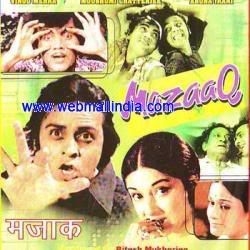+Performance+and+Scalability.jpg)
Book Details
Paperback: 320 pages
Publisher: Addison-Wesley Professional; 1st edition (June 2, 2000)
Language: English
ISBN-10: 0201704293
ISBN-13: 978-0201704297
Amazon.com
Written for the working programmer who wants to get more speed out of Java, Java Performance and Scalability, Volume 1 bundles several dozen tips for faster and smaller Java code. Backed up by benchmarks of what works and what doesn't, this book provides essential wisdom for eliminating some common bottlenecks to Java performance.
The 48 optimizations for various aspects of the Java API make up the heart of this text. Early sections look at a particularly tricky subject--string processing--giving you several techniques for increasing speed and reducing object creation. The in-depth examination of the costs and benefits of string concatenation and the immutability of Java String objects will help you uncover possible hot spots that cause lagging performance with strings.
Subsequent sections look at more general strategies for faster programs, like purging obsolete code, and the well-known 80-20 rule (optimizing the 20 percent of your code that consumes 80 percent of processing time, allowing you to create faster software; this book shows you how). Short tips on such APIs as Java collections and the Java Native Interface (JNI) come next.
The second half of the book zeros in on better server-side performance with tips on caching and file I/O. The guide to multithreading and synchronization is a standout here. You'll get several smart tips for speeding up servlets, such as precomputing your standard strings for headers and other boilerplate HTML. The book closes with a valuable custom class for JDBC database connection pooling and a custom HTTP server. Both samples make use of the techniques presented earlier in the text. Even if you don't adopt every suggestion, the ideas here can get you thinking about performance in new ways. (One of the main points of this book is that you can write faster custom code, instead of always relying on built-in Java classes and APIs.)
Clearly, Java performance is not something that happens by accident; it must be engineered into your code. This compilation of useful techniques and tips deserves a close look by anyone who wants to squeeze more performance out of Java. --Richard Dragan
Topics covered:
Introduction to Java performance
More efficient Java string handling (optimizing String, StringBuffer, and StringTokenizer objects)
Reducing Java overhead
Faster initialization
The 80-20 rule for optimization
Getting rid of obsolete code
Speeding up the JDK 1.1 Vector and Hashtable collection classes
Caching techniques
Optimizing file I/O and buffering
Object recycling and object pools
Techniques for multithreading and synchronization
Amdahl's law and scalability basics
Pros and cons of using the Java Native Interface (JNI)
Hints for optimizing Remote Invocation Method (RIM) calls
Performance hints for servlets and JavaServer Pages (JSPs)
Custom sample code for JDBC database connection pooling and a Java HTTP server
Book Description
This book was written with one goal in mind: to provide Java programmers with the expertise needed to build efficient, scalable Java code. The author shares his experience in server-side performance tuning through measured performance assessments, called optimizations. Each optimization discusses techniques to improve the performance and scalability of your code. Every claim is substantiated with hard numbers and an experience-based evaluation. Java(TM) Performance and Scalability, Volume 1, provides invaluable advice that you will, no doubt, find useful in your coding. Presented in 48 concise lessons that target the most common and critical performance pitfalls, this book offers a plethora of practical tips and solutions for boosting the performance of your programs. These lessons cover performance-critical areas such as memory management, garbage collection, caching, and multithreading. Specific lessons include:
Reserving StringBuffer capacity
Avoiding premature object creation
Creating an efficient vector class
Designing caching into your API
The cost of synchronization
Parallel subtasks
JNI efficiency
Varying the server workload and RMI network plumbing
Using ServletOutputStream
Caching JDBC connections In addition to providing hard numbers that quantify the optimizations, the author concludes the book with an application demonstrating the effectiveness of the performance optimizations. The exercise takes a typical program and increases its performance fourfold through a series of steps that tie together the lessons learned throughout the book. He offers both the means and the proof to better coding.
For more free books download visit this blog daily
Download
Password is : sharedaa.com
.






0 Response to "Server-Side Programming Techniques Java(TM) Performance and Scalability"
Post a Comment